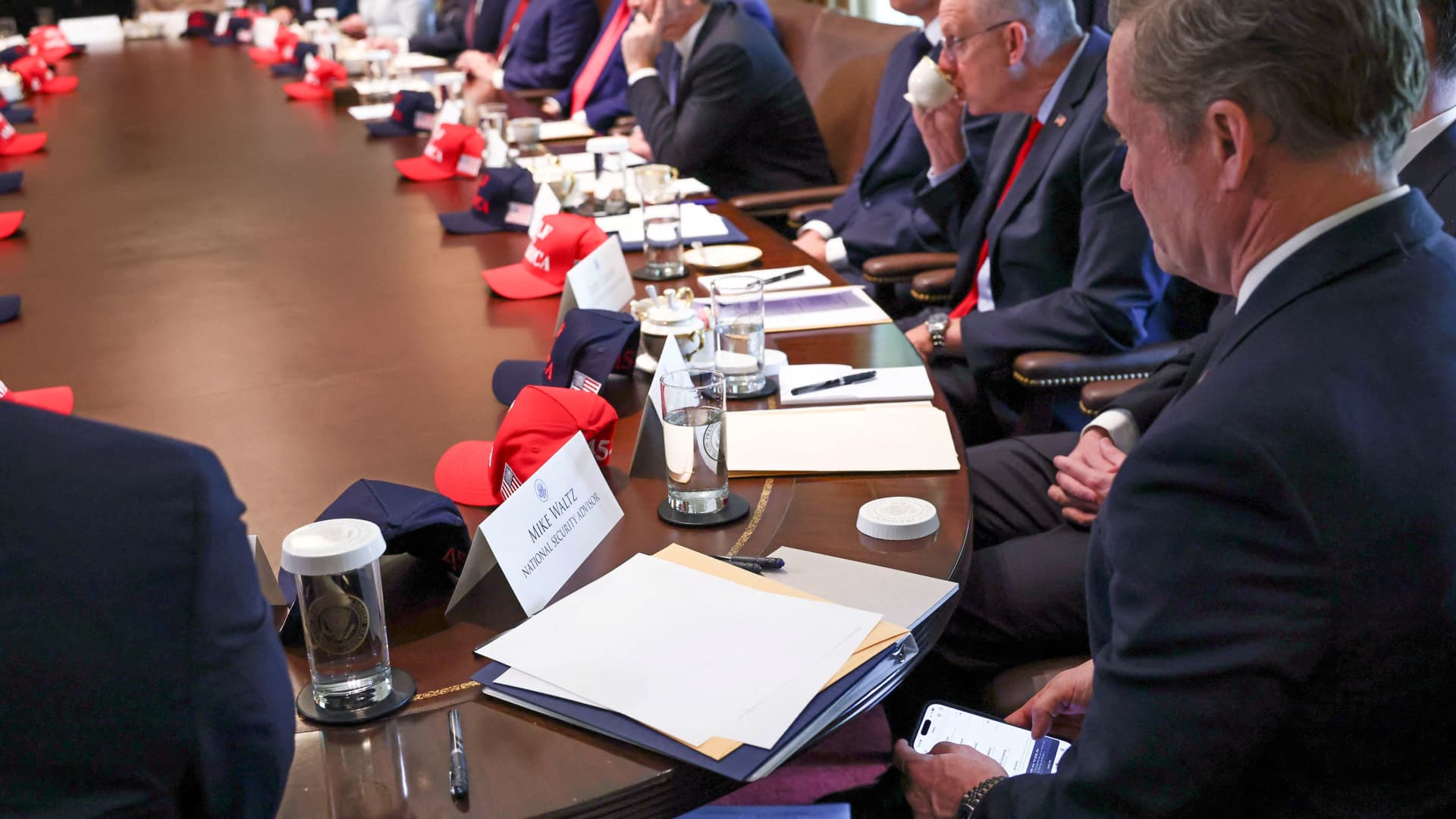The Signal Scandal: Unraveling the Trump Administration’s Messaging Fiasco
The digital age has brought about unprecedented changes in communication, but it has also introduced new challenges, especially for government officials. The Signal scandal, involving the Trump administration’s use of the secure messaging app Signal, has sparked a maelstrom of criticism, legal actions, and public outcry. This deep dive explores the origins, implications, and reactions to this messaging fiasco.
The Genesis of the Scandal
The Signal scandal began with a seemingly innocuous photo. The image, which ignited the controversy, showed former White House national security advisor Mike Waltz with Signal message threads involving individuals identified as JD Vance and Marco Rubio, among others. What made this revelation particularly surprising was that President Trump had publicly discouraged the use of the app. This discrepancy between the president’s stance and his officials’ actions set the stage for a scandal that would capture national attention.
Legal and Ethical Quagmire
The use of Signal by Trump officials has raised significant legal and ethical questions. Signal’s end-to-end encryption ensures that messages are secure and can disappear after a set time. While this feature enhances privacy, it also allows messages to be easily deleted, complicating the maintenance of official communication records. This lack of transparency has drawn criticism from former officials like John Bolton, who argue that such practices can undermine accountability.
The scandal took a more serious turn when a U.S. district court judge ordered certain immigrants to remain in the U.S. as they awaited trial. Despite this order, Trump officials reportedly sent the men away, defying the law. This action has been widely criticized as a blatant disregard for legal processes and judicial orders, further fueling the public’s outrage.
Public and Veteran Outcry
The Signal scandal has resonated deeply with the public, particularly among veterans. Post-9/11 veterans have demanded accountability for the alleged leak of classified information via Signal. A survey by the Iraq and Afghanistan Veterans of America (IAVA) revealed that more than eight in 10 veterans believe there should be accountability for the Signal leak. This sentiment underscores the public’s concern over the handling of classified information and the need for transparency in government communications.
The Administration’s Defense
The Trump administration has faced significant backlash over the Signal scandal. In response to the criticism, the administration has maintained that the use of Signal was limited and not widespread among intelligence officials. However, this defense has done little to mitigate the damage. The scandal has led to a major staff shakeup, with multiple officials involved in the Signalgate scandal leaving their posts. The administration’s attempts to downplay the incident have been met with skepticism, and the public’s demand for accountability remains unabated.
Signal’s Stance
Signal, the messaging app at the center of the scandal, has issued statements to clarify its position. The company has emphasized that its software is designed to protect user privacy and that it does not have access to the content of messages sent through the app. However, the scandal has put Signal under scrutiny, with many questioning the appropriateness of using such apps for official government communications. The app’s design, which prioritizes privacy, has been both a strength and a weakness in this context.
National Security Concerns
The Signal scandal has raised serious concerns about national security. The use of encrypted messaging apps by government officials can make it difficult to track communications and ensure that sensitive information is not leaked. This has led to calls for stricter regulations on the use of such apps by government officials and a re-evaluation of how national security is maintained in the digital age. The challenge lies in balancing the need for secure communications with the requirement for transparency and accountability.
The Future of Government Communications
The Signal scandal serves as a wake-up call for the government to reassess its communication practices. As technology continues to evolve, it is crucial for government officials to adapt and ensure that their communications are secure and transparent. This may involve the development of new communication tools that balance the need for security with the need for accountability. The scandal has highlighted the complexities of maintaining secure and transparent communications in the digital age and the need for ongoing vigilance.
Conclusion: Transparency and Accountability in the Digital Age
The Signal scandal has laid bare the complexities and challenges of maintaining secure and transparent communications in the digital age. As the Trump administration grapples with the fallout from this scandal, it is clear that there is a need for greater transparency and accountability in government communications. The public, especially veterans, has made it clear that they expect their leaders to uphold the law and maintain the highest standards of integrity. The Signal scandal serves as a stark reminder that in the age of digital communication, the stakes are higher than ever, and the need for vigilance and accountability is paramount. The lessons learned from this fiasco will undoubtedly shape the future of government communications, ensuring that they are secure, transparent, and accountable to the public.

